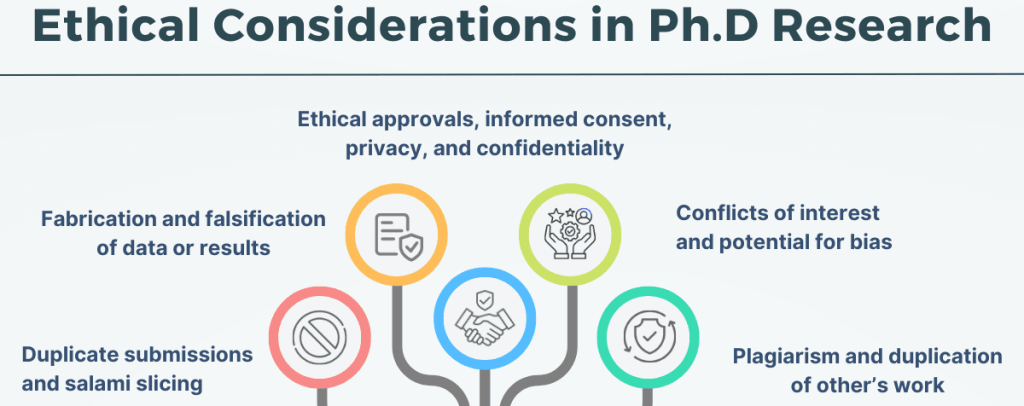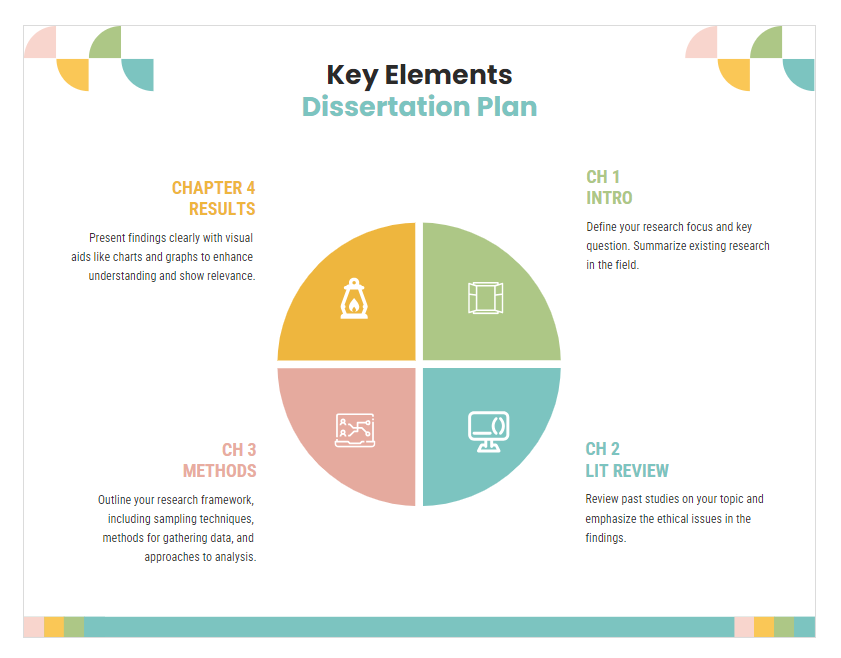
Table of Contents
Embarking on a dissertation about ethical nursing is a challenging yet deeply rewarding endeavor. It demands meticulous research, critical thinking, and a profound understanding of the intricate web of ethical principles that govern the practice of nursing.
This article serves as a guide for aspiring scholars, providing a comprehensive framework to navigate the complexities of writing a dissertation about ethical nursing.
Step-by-Step Guide to Crafting a Dissertation about Ethical Nursing
1. Defining Your Scope: Laying the Foundation of a Strong Dissertation
The first step in writing a dissertation about ethical nursing is to define your scope. What specific ethical challenges within the nursing profession pique your interest? Are you drawn to the ethical implications of emerging technologies like artificial intelligence in healthcare? Perhaps you are intrigued by the ethical considerations surrounding end-of-life care or the dilemmas of informed consent. Clearly outlining your research question is crucial; it acts as the guiding star for your dissertation about ethical nursing.
Examples of Research Questions for a Dissertation about Ethical Nursing:
- How do nurses balance patient autonomy with their professional duty to provide care in cases of advance care planning?
- What ethical considerations arise when using telehealth to deliver nursing care in underserved communities?
- How can nurses advocate for vulnerable patient populations while navigating complex healthcare systems?
- What ethical frameworks can guide nurses in addressing the growing opioid crisis?
2. Literature Review: Building the Foundation
A robust literature review forms the backbone of your dissertation about ethical nursing. It is essential to delve into existing research, ethical frameworks, and relevant literature on the topic. Analyze ethical theories like utilitarianism, deontology, and virtue ethics. Explore established nursing codes of ethics, including the American Nurses Association (ANA) Code of Ethics for Nurses. Examine ethical dilemmas faced by nurses in various settings, such as hospitals, community clinics, and long-term care facilities.
3. Methodology: The Cornerstone of a Rigorous Dissertation
The choice of methodology for your dissertation about ethical nursing depends on your research question and objectives. Common methodologies include:
- Qualitative Research: This approach allows you to explore in-depth the lived experiences of nurses and patients, uncovering complex ethical considerations through interviews, focus groups, and observations.
- Quantitative Research: This methodology utilizes surveys, questionnaires, and statistical analysis to quantify ethical attitudes and behaviors among nurses and patients.
- Mixed Methods Research: Combining qualitative and quantitative approaches can offer a comprehensive understanding of ethical issues in nursing practice.

4. Data Analysis: Unveiling Meaning in Your Ethical Nursing Dissertation
Once data is collected, rigorous analysis is crucial to extract meaningful insights. Qualitative data requires thematic analysis, identifying recurring patterns and themes within narratives. Quantitative data is typically analyzed using statistical software to identify correlations, trends, and statistically significant findings. The analysis should be conducted in a transparent and objective manner, ensuring the reliability and validity of your dissertation about ethical nursing.
5. Ethical Considerations: A Fundamental Responsibility in Dissertation Writing
Ethical considerations are paramount when conducting research on ethical nursing. Ensure informed consent is obtained from all participants, guaranteeing confidentiality and anonymity. Protect the privacy of all individuals involved and maintain objectivity in your research to avoid bias. Remember, your dissertation about ethical nursing should not only explore ethical dilemmas but also adhere to the highest ethical standards in research.
6. Discussion and Conclusion: Reflecting on Your Ethical Nursing Dissertation
The discussion section of your dissertation about ethical nursing should delve into the significance of your findings. Discuss the implications of your research for nursing practice, policy development, and future research directions. Connect your findings to existing ethical theories and frameworks, demonstrating the contribution of your work to the body of knowledge on ethical nursing. The conclusion should summarize your key findings, highlight the limitations of your study, and reiterate the importance of ethical considerations in nursing practice.
7. Writing Style and Structure: Crafting a Cohesive Dissertation about Ethical Nursing
Your dissertation about ethical nursing should be written in a clear, concise, and academic style. Use appropriate language and avoid jargon. Maintain a consistent flow throughout the document, logically connecting your arguments and evidence. Structure your dissertation into chapters, each focusing on a specific aspect of your research.
Examples of Dissertation Chapter Structure:
- Chapter 1: Introduction – Define your research topic, pose your research question, provide a brief overview of the literature review, and outline your methodology.
- Chapter 2: Literature Review – Explore existing research, ethical frameworks, and relevant literature on your chosen topic.
- Chapter 3: Methodology – Describe your research design, sampling methods, data collection procedures, and data analysis techniques.
- Chapter 4: Results – Present your findings in a clear and objective manner, using tables, figures, and statistical analysis as appropriate.
- Chapter 5: Discussion – Discuss the significance of your findings, connect them to existing literature, and explore their implications for nursing practice, policy, and future research.
- Chapter 6: Conclusion – Summarize your key findings, discuss limitations, and reiterate the importance of ethical considerations in nursing practice.
8. Proofreading and Editing: Ensuring Clarity and Accuracy in Your Dissertation
Before submitting your dissertation about ethical nursing, meticulous proofreading and editing are essential. Ensure your writing is grammatically correct, free of typos, and easy to read. Seek feedback from peers, mentors, or experienced editors to ensure the clarity and accuracy of your arguments and evidence.
9. Defending Your Dissertation about Ethical Nursing: Presenting Research with Confidence
The final stage of your dissertation about ethical nursing journey is the defense. Prepare a concise and well-structured presentation of your research, highlighting key findings and addressing potential criticisms. Be prepared to answer questions from the dissertation committee, demonstrating your in-depth understanding of the topic and the implications of your findings.
Avoiding the Common Pitfalls in a Dissertation about Ethical Nursing
A dissertation about ethical nursing is a challenging but rewarding endeavor. It allows you to delve deeply into the complex moral dilemmas faced by nurses and contribute to the body of knowledge in this vital field. However, this academic undertaking is fraught with potential pitfalls that can derail your progress and impact the quality of your research. Understanding these common mistakes and implementing preventive strategies is crucial for a successful and impactful dissertation.
Pitfall 1: Lack of Clarity in Research Question and Scope
One of the most common pitfalls in a dissertation about ethical nursing is a lack of clarity in the research question and scope. The chosen topic must be well-defined and manageable, avoiding overly broad or vague inquiries. A dissertation about ethical nursing should have a specific focus, whether it’s exploring ethical dilemmas in a particular clinical setting, examining the impact of cultural factors on ethical decision-making, or analyzing the effectiveness of ethical frameworks in nursing practice.
Solution:
- Start with a clear problem statement: Identify a specific ethical issue or challenge within nursing that needs investigation.
- Formulate focused research questions: Develop concise and answerable questions that guide your research.
- Define the scope of your study: Clearly outline the population, setting, and time frame of your investigation.
Pitfall 2: Inadequate Review of Existing Literature
A comprehensive and critical review of the existing literature is essential for a dissertation about ethical nursing. Failing to thoroughly explore prior research can lead to a lack of originality, repetition of existing knowledge, and an incomplete understanding of the chosen topic.
Solution:
- Use a systematic approach: Develop a search strategy using relevant keywords and databases.
- Analyze the findings of existing studies: Identify gaps in knowledge and areas for further investigation.
- Critically evaluate the strengths and weaknesses of prior research: This will help you to develop a stronger theoretical framework for your study.
Pitfall 3: Methodological Flaws
Choosing the appropriate research methodology and ensuring its rigorous execution is crucial for a dissertation about ethical nursing. A poorly designed study can lead to flawed data collection, unreliable findings, and diminished credibility.
Solution:
- Select a method that aligns with your research questions: Consider qualitative, quantitative, or mixed methods approaches.
- Develop a robust data collection plan: Ensure the chosen tools and procedures are appropriate and ethical.
- Implement data analysis techniques that are aligned with your methodology: Choose methods that can effectively answer your research questions.
Pitfall 4: Insufficient Ethical Considerations
Given the sensitive nature of the subject matter, a dissertation about ethical nursing must prioritize ethical considerations throughout the research process. Neglecting ethical safeguards can lead to harm to participants, breach of confidentiality, and damage to the researcher’s credibility.
Solution:
- Obtain informed consent from participants: Ensure they understand the risks and benefits of participation.
- Maintain anonymity and confidentiality: Protect the identities and personal information of participants.
- Seek ethical approval from an institutional review board: This will ensure that your study meets ethical standards.

Pitfall 5: Weak Discussion and Interpretation of Findings
The discussion and interpretation section of your dissertation is where you connect your findings to existing literature and draw conclusions about your research questions. A lack of depth, critical analysis, and theoretical grounding can undermine the impact of your dissertation.
Solution:
- Link your findings to the theoretical framework: Explain how your results support or challenge existing theories.
- Address limitations and implications: Be transparent about any weaknesses in your study and consider the broader implications of your findings.
- Develop clear and concise conclusions: Summarize your key findings and their significance for nursing practice and future research.
Pitfall 6: Poor Writing and Presentation
A dissertation about ethical nursing must be written in a clear, concise, and well-organized manner. Poor writing and presentation can obscure your insights and make your work difficult to understand.
Solution:
- Use academic writing style and formatting: Follow APA or other relevant citation guidelines.
- Proofread carefully: Ensure your work is free from grammatical errors and typos.
- Develop a compelling narrative: Use clear language and engaging storytelling to convey your research findings.
By avoiding these common pitfalls and employing these preventative strategies, you can write a dissertation about ethical nursing that is both insightful and impactful. Remember, this is a journey of discovery and growth, and a strong foundation built on careful planning and rigorous execution will help you navigate the ethical labyrinth of your research and contribute meaningfully to the field of nursing.
Frequently Asked Questions about a Dissertation about Ethical Nursing
The field of nursing is built on a foundation of ethical principles, making it a rich source of exploration for dissertations. If you’re considering writing a dissertation about ethical nursing, you’re likely wrestling with numerous questions. This section addresses some of the most frequently asked questions about embarking on this research journey.
1. What Makes a Dissertation about Ethical Nursing Unique?
A dissertation about ethical nursing stands out due to its inherent complexity and the profound impact of its findings. It’s not simply about defining ethics in nursing; it dives into the nuances of ethical dilemmas, the complexities of decision-making in various clinical settings, and the impact of ethical considerations on patient outcomes. This interdisciplinary nature, blending ethical theory with real-world nursing practice, makes it a fascinating and impactful research area.
2. What are Some Potential Topics for a Dissertation about Ethical Nursing?
There’s a wealth of potential topics for a dissertation about ethical nursing. Here are a few examples:
- Exploring the ethical implications of emerging technologies in nursing practice. This could involve examining the use of artificial intelligence in patient care, telehealth, or genetic screening.
- Analyzing the ethical considerations of end-of-life care, including topics like advance directives, palliative care, and physician-assisted suicide.
- Investigating the ethical challenges faced by nurses working in specific populations, such as those with mental health conditions, substance abuse disorders, or disabilities.
- Evaluating the effectiveness of different ethical frameworks in guiding nursing practice.
- Examining the role of professional ethics codes in shaping nursing practice and addressing ethical dilemmas.
- Studying the impact of cultural diversity and globalization on ethical considerations in nursing.
3. How Do I Choose a Topic for My Dissertation about Ethical Nursing?
Choosing the right topic for your dissertation about ethical nursing is crucial. Here are some steps to help you narrow your focus:
- Reflect on your own experiences and interests: What aspects of ethical nursing have you encountered in your own practice or education that sparked your curiosity?
- Review current literature and research: Explore recent publications in nursing ethics to identify areas of ongoing debate or emerging trends.
- Consider your available resources: Is there a specific population or setting where you have access to data or participants?
- Seek guidance from faculty advisors: Your advisor can offer valuable insights and suggestions for narrowing your focus.
4. What Research Methods Can I Use for My Dissertation about Ethical Nursing?
The research methods you choose will depend on your specific topic and research question. Common methods used in dissertations about ethical nursing include:
- Qualitative research: This approach allows for in-depth exploration of ethical dilemmas and the perspectives of nurses and patients. Methods include interviews, focus groups, and case studies.
- Quantitative research: This approach utilizes surveys, questionnaires, and statistical analysis to quantify and compare ethical attitudes, behaviors, and outcomes.
- Mixed methods research: Combining qualitative and quantitative methods can provide a more comprehensive understanding of the ethical landscape.
5. How Can I Ensure My Dissertation about Ethical Nursing Meets Ethical Standards?
Ensuring ethical rigor in your dissertation about ethical nursing is paramount. Here are some key considerations:
- Obtain informed consent from all participants: Ensure that participants fully understand the nature and risks involved in your research.
- Maintain confidentiality and anonymity: Protect the privacy of participants by keeping their identities and information confidential.
- Avoid potential conflicts of interest: Disclose any potential conflicts of interest that could bias your research findings.
- Seek guidance from ethical review boards: Ensure your research proposal adheres to institutional guidelines and ethical standards.
6. What Are Some Tips for Writing a Successful Dissertation about Ethical Nursing?
A successful dissertation about ethical nursing requires careful planning, thorough research, and effective writing. Here are some tips:
- Start early and break down the task into smaller manageable steps.
- Engage in regular meetings with your advisor for guidance and feedback.
- Develop a strong theoretical framework to guide your research and analysis.
- Use clear and concise language to communicate your findings effectively.
- Be prepared to revise and refine your dissertation throughout the writing process.

Writing a dissertation about ethical nursing is a challenging yet rewarding endeavor. By addressing these common questions and following the guidance provided, you can embark on a research journey that contributes valuable insights to the field and ultimately enhances ethical practices in nursing. Remember, your work has the potential to shape the future of ethical decision-making in healthcare, influencing the lives of countless patients and nurses alike.
Beyond the Dissertation: Continuing the Conversation on Ethical Nursing
Your dissertation about ethical nursing is not the end of your journey. Continue to engage with the ethical challenges facing the nursing profession. Attend conferences, publish your research, and advocate for ethical practices in nursing. By sharing your knowledge and insights, you can contribute to fostering ethical awareness and promoting ethical conduct within the nursing profession.
Writing a dissertation about ethical nursing is a demanding but rewarding undertaking. It requires a deep understanding of ethical principles, rigorous research, and a commitment to promoting ethical practice. By following the guidelines outlined in this article, you can embark on a journey of intellectual discovery and contribute to the ongoing conversation about ethics in nursing. Remember, your dissertation about ethical nursing is not merely a research project; it is an opportunity to make a meaningful contribution to the field and to advance ethical nursing practices for the benefit of patients and healthcare providers.
Get Professional Dissertation Writing Service
At Nursing Papers, we offer professional writing service for Master’s and PhD in nursing. Our service covers topic suggestion, dissertation writing, proofreading, editing, formatting and plagiarism removal. Besides dissertations, we can also assist you with writing essays, research papers and case studies.







